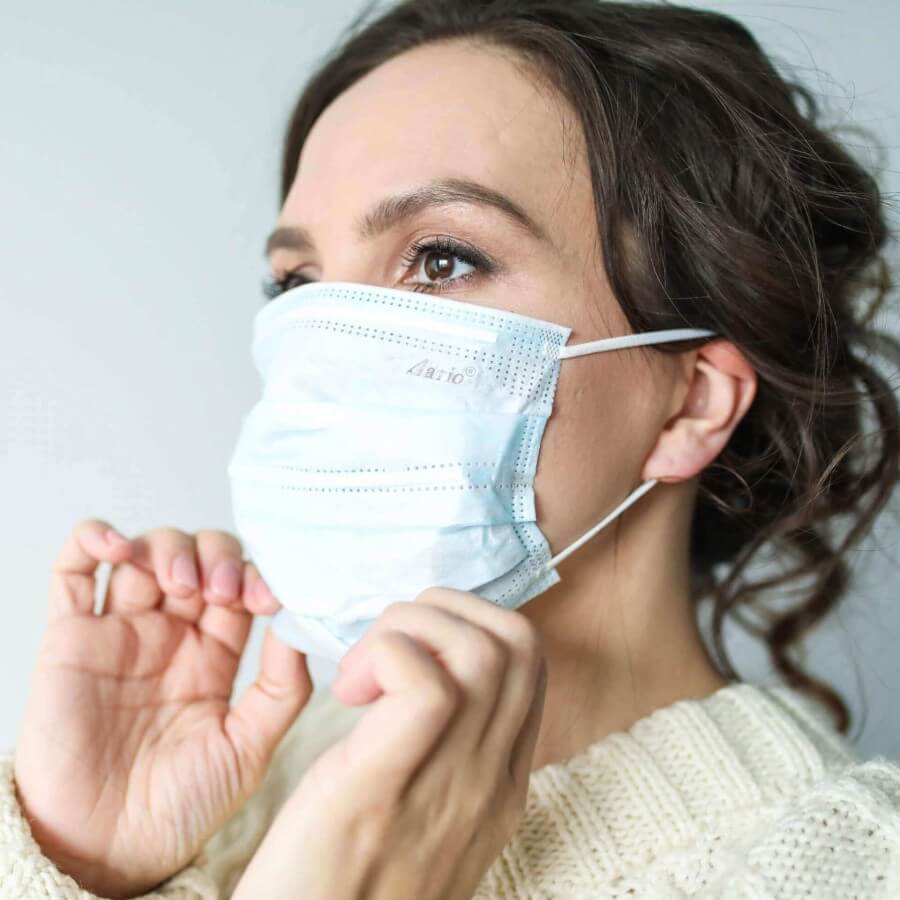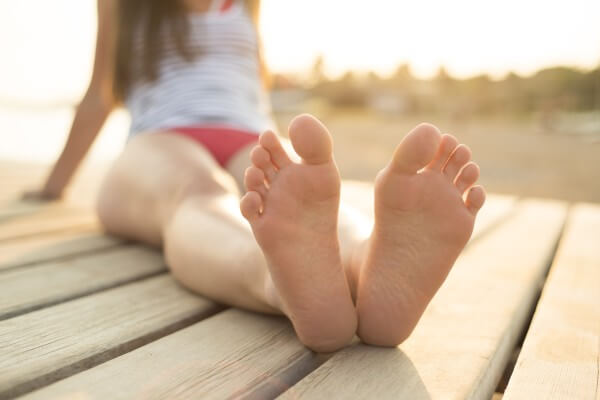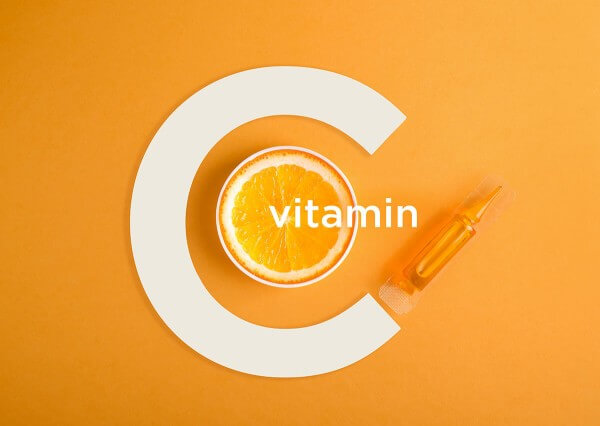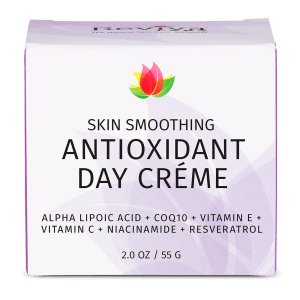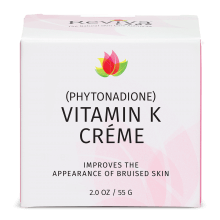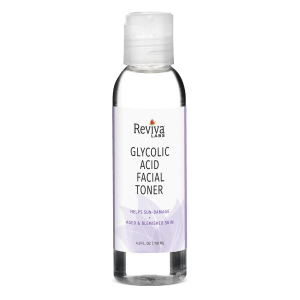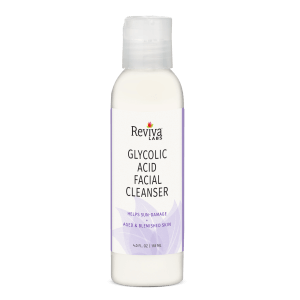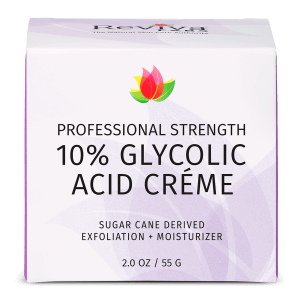Clean Beauty, Reviva Labs, Skin Care
Face masks, irritations, acne, and skin care
COVID-19 has caused so many changes in our daily lives it’s hard to know where to start. But one of the most common questions our team has been receiving is: how can I help my skin’s irritation due to wearing a face mask all day? Face masks are a sensible and effective precaution to counter the COVID-19 virus; but wearing a face covering for long periods can contribute to skin problems.
Face masks can cause skin irritation, mild bruising, acne (aka maskacne or maskne), and even contact dermatitis.
The most common issues we’ve heard relate to simple skin irritation across the bridge of the nose, behind the ears, or along the chin line. Face mask straps can put stress on the delicate skin behind the ears and as you naturally move your head around, the straps tend to rub. The same is true along the bridge of the nose, as some masks move just enough throughout the day to cause irritation. And the chin is particularly sensitive as the moisture from breath can cause a combination of issues that’s compounded by the rubbing of the mask.
Face Mask Friction and Rubbing Irritation
To soothe irritation due to rubbing, first make sure your mask is properly fitted. The straps should be taut but not overly tight. You can also use strap extenders or similar homemade solutions to extend the straps from around the ears so the pressure transfers around the back of your head. This removes the pressure from the ears and can help reduce skin irritation. To alleviate mild skin irritation, use a good moisturizer that supports and replenishes the skin’s natural barrier that can be rubbed away due to friction. Our Cream Hydratante is a terrific solution as it’s ultra hydrating via hyaluronic acid and it includes skin barrier-boosting candelilla wax. It will work around the ears and anywhere on the face that is suffering from contact irritation.
Face Mask Bruising
Mild bruising from face masks is more frequently seen among frontline workers who need to wear protective, tight fitting masks for long periods. Doctors, nurses, and others often need to secure their masks tightly or need to wear multiple layers as extra protection. This continual pressure to the delicate facial skin invariably leads to mild bruising. Moisturizing can help reinvigorate the skin and keep it healthy. But to aid in eliminating the bruising, we’d suggest our Vitamin K Creme that helps alleviate bruised skin. It includes Phytonadione (vitamin K) and fruit extracts to help alleviate bruising while also soothing sensitized skin.
Face Mask Acne
Acne or Maskacne or Maskne due to face masks is becoming more common. It ranges in severity. The friction from the mask, along with increased heat and humidity from trapped breath, makes for a perfect breeding ground for acne-causing bacteria. Dermatologists are seeing an increase in folliculitis (infected hair follicles) and even perleche or cheilitis (yeast related skin conditions), and perioral dermatititis (a variant of rosacea) which presents as dry patches or cystic pimples. And of course, your standard acne-type breakouts have increased too, as your skin is bombarded with all the conditions that are perfect to exacerbate breakouts.
Moisturizers rich in vitamin E or niacinamide that hydrate and protect the skin will prove beneficial.
To combat these types of skin conditions it’s important to wash your face with a gentle cleanser, after which you should apply a good moisturizer. Moisturizers rich in vitamin E or niacinamide that hydrate and protect the skin will prove beneficial. Our Antioxidant Day Creme is an excellent solution as it contains Alpha Lipoic Acid, CoQ10, Vitamin C, Vitamin E, Green Tea Extract, Niacinamide, Resveratrol, and Skin-Smoothing Oils. For mild blemished skin you can also use our Glycolic Acid Skin Care: cleanser, toner, and 10% Glycolic Creme to help control breakouts. And if your skin is accepting, you can use one of our mild Restoring Skin Care mask products (Fruit Enzyme Mask, Hydrating Mask, Charcoal Mask, Light Skin Peel) in the evening or on the weekends to help cleanse and purify your skin.
Some dermatologists have also suggested it might be helpful to shift skin care regimens to the evening if you typically apply heavy anti-aging creams or lotions in the AM. Or at least, make sure the skin care is non-comedogenic and doesn’t make mask-related issues worse. Moreover, you may want to forgo wearing makeup, as it won’t be seen under a mask and can contribute to skin issues.
Hopefully, with a little effort and some good basic skin care practices – cleanse, hydrate, and protect – you should be able to control and/or alleviate face mask-related issues without needing a medical consultation. But of course, if your skin conditions worsen, or don’t respond to home treatments, you should always seek out medical help from your dermatologist.
Reference:
- https://www.health.com/condition/infectious-diseases/coronavirus/face-mask-skin-irritation
- https://www.nbcnews.com/better/lifestyle/what-are-best-skin-care-products-acne-prone-skin-look-ncna1032911
- https://www.cnbc.com/2020/05/13/rash-irritation-downsides-face-masks-how-to-protect-skin-according-to-doctors.html
- https://www.wederm.com/2020/05/08/face-mask-marks/
- https://hk.asiatatler.com/style/face-mask-breakouts-skincare



